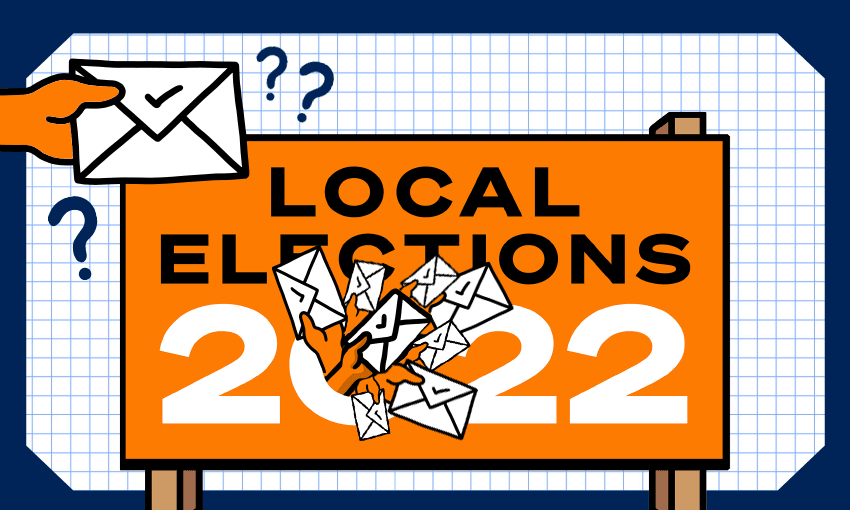Ballot receipts have fallen significantly from the same point in 2019, but there is reason not to be alarmed, say officials.
With 10 days to go till polling closes – and less than a week until you can post your ballot to be sure it will be counted – daily returns are measurably down on the numbers from the same stage in 2019, and further still from 2016. Local election officials caution that the trajectory may not be indicative, however, given a range of factors, including infrequent delivery, alternative voting options and Monday’s Queen Elizabeth II memorial public holiday.
In Auckland, a total of 5.7% of ballots from eligible voters had been received by 9pm last night. That compares with 9.3% in 2019 and 13.2% in 2016.
In Wellington, 4.9% of city council votes were reported as having arrived. In 2019, 5.7% were recorded at the same stage, and 9.4% in 2016.
Christchurch has cracked double figures, with 10.9% of city council votes having arrived by last night, just shy of the 11.4% at the same point in 2019. In 2016, the corresponding number was 15.8%.
A similar pattern can be seen across the country. By last night, 6.6% of votes for the Dunedin City Council had arrived, compared with 11.1% in 2019 and 15.3% in 2016. Invercargill recorded 11.7% of votes in the pocket, but that was still down from 17.9% at the same point in 2019.
In Nelson, the return last night stood at 7.8%, compared with 13.9% in 2019. In Rotorua Lakes, 5.7% of votes were reported received, compared with 9.3% at the same point last time round. The Queenstown Lakes District Council was sitting on 6.2%, down from 13.1% three years ago.
Turnout in local elections is significantly lower than at general elections, and tends to be higher in less populated territories, with a lower return in contests with more eligible voters. In 1989, following an overhaul of the local election system, the turnout across the country was 56%. By 2019 that had fallen to 42%. Auckland was the lowest of the lot, at 35.3%.
It was too soon to confidently extrapolate from the early numbers, but “from what I see at my end it’s on track for the usual return in due course”, said Warwick Lampp, the chief returning officer for Electionz.com, which runs elections around the country, including city council contests in Wellington, Christchurch and Dunedin.
Speaking before the numbers were updated last night, he said: “With the availability of orange ballot bins in most councils, where it is easier and more convenient to return votes, we reckon the final turnout will be about the same."
Rose Leonard, manager of governance services at Auckland Council, said that while the numbers from Friday pointed to a lower turnout, “these are only postal votes that have been collected so far”. Commenting before the latest update from last night, she said this week’s numbers would include ballots returned to Vote Boxes, 150 of which have been placed around the super city.
“We’re expecting to see a larger daily return from Vote Boxes as they are in more frequented locations, particularly in some local board areas that typically have lower turnout,” said Leonard. “We’re hoping that as more people see the Vote Boxes, it will trigger them to drop off their vote while they’re out and about, for example on their next run to the supermarket.”
Susan Freeman Greene, chief executive at Local Government NZ, stressed that it was “early days” as far as daily returns were concerned. “Still, LGNZ is asking everyone to open up those envelopes sooner rather than later and set aside some time to have a kōrero about the elections and the candidates with your friends and whānau.”
For practical information on voting in local elections, read our explainer here.
To learn more about who is standing in your area – and what they stand for – check out Policy.nz, the complete guide to the New Zealand 2022 local elections.




